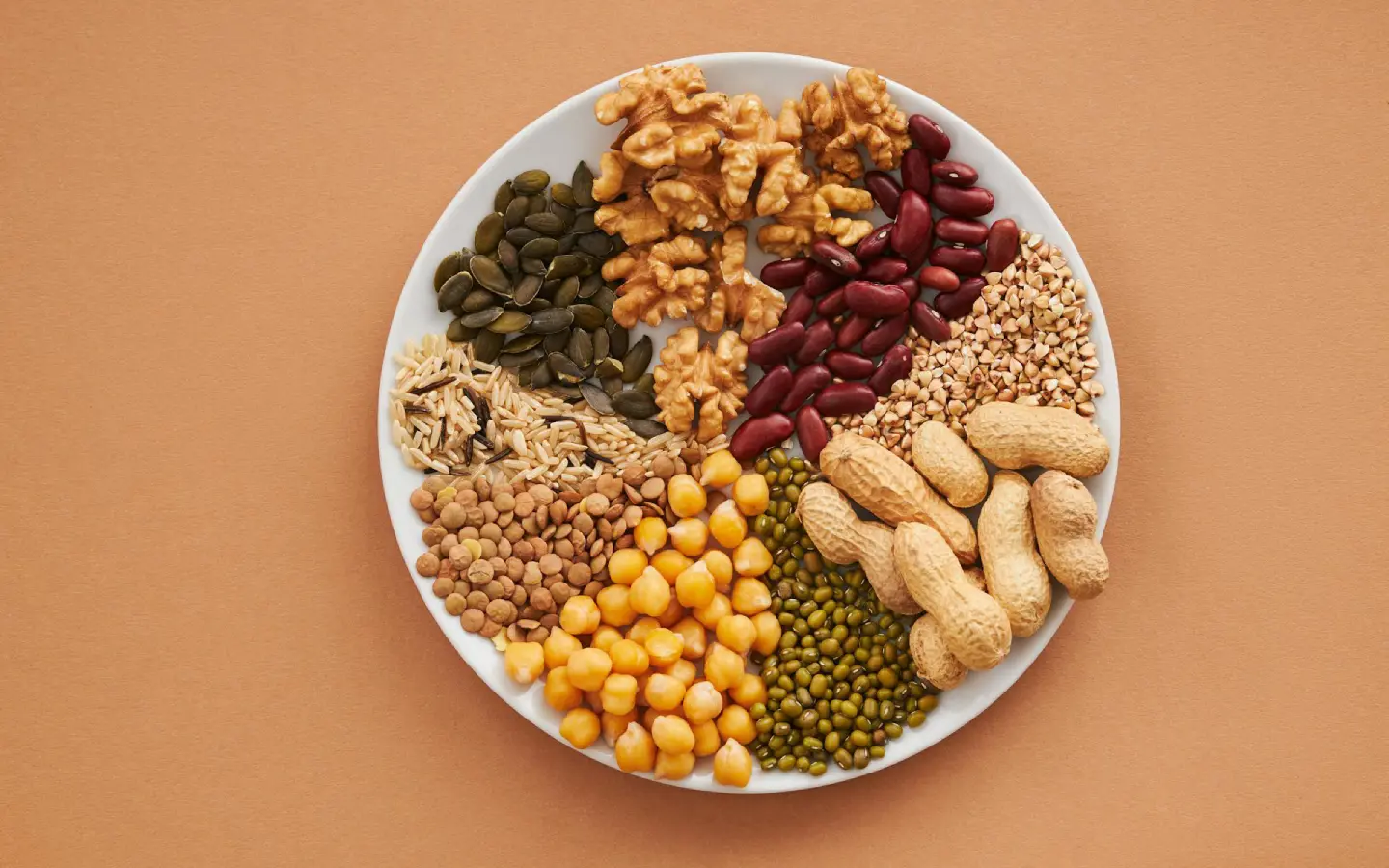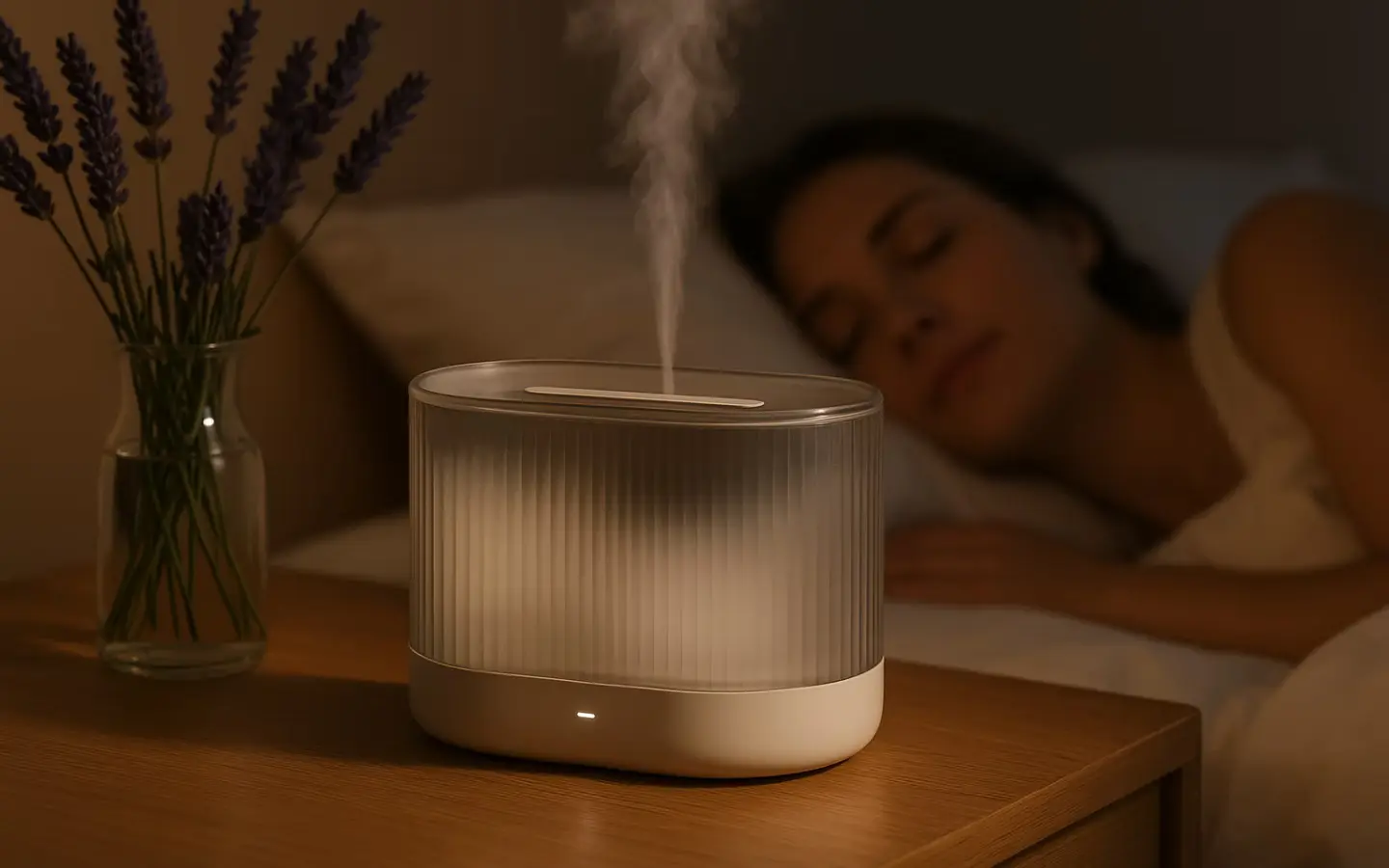September 7, 2025
Foods That Help You Sleep (and the Ones That Don’t)
Sleep is an essential part of our lives.When you sleep, your body repairs itself after everything that happened during the day. It clears out cellular waste from the brain, consolidates memory, and supports the immune system. Even after one night of bad sleep, you can see the difference in your energy levels, from lack of energy to mood swings, or even just your ability to focus.
Because these restorative and healing processes happen during deeper stages of sleep, much of the sleep improvement tips you read online are about removing or preventing disruptions to the sleep cycle. Diet is no different in this regard, and there are foods that help you sleep and those that you are better off avoiding at bedtime.
How Diet Affects Sleep
The food you eat doesn’t just give you energy for the day. Certain nutrients we get from food are directly involved in the process of falling and staying asleep.
The main ones are:
- Melatonin
- Serotonin
- Tryptophan
- Magnesium
- B vitamins
- Fiber and healthy fats
Melatonin is called the sleep hormone. It’s produced naturally in the pineal gland when it gets dark, but small amounts also come from food.
Serotonin is one of the main happy hormones. It helps you feel calm, and later at night it’s converted into melatonin. To make serotonin, your body needs tryptophan. That’s an amino acid you get from protein-rich foods like turkey, eggs, tofu, and seeds. Combine it with complex carbs, and it crosses into the brain more easily.
Magnesium helps your nervous system settle down and helps with muscle relaxation after a tense day. Leafy greens, nuts, seeds, and beans are good sources of magnesium. Low magnesium is often linked with restless, fragmented sleep.
B vitamins (especially B6, B12, and B9 or folic acid) support the whole process of converting tryptophan into serotonin and melatonin. You’ll find them in whole grains, legumes, and dairy.
High-fiber meals (vegetables, fruits, legumes, whole grains) and healthy fats (like nuts, seeds, olive oil, fatty fish) are also tied to deeper, more restorative sleep. A diet heavy in sugar and processed fats, on the other hand, often leads to lighter sleep and more disrupted nights in general.

Foods That Help You Sleep
Eating with sleep in mind throughout the day, and especially in the evening, can make it easier to fall asleep and stay asleep.
Here are the foods worth focusing on:
Complex Carbohydrates
Not all carbs are the same. Refined carbs, like white bread, pasta, and desserts, spike your blood sugar and can wake you later in the night, often during REM sleep. Complex carbohydrates digest more slowly and don’t cause those sharp spikes. They also help tryptophan, the amino acid linked to serotonin and melatonin, reach the brain.
Good options include oats, quinoa, barley, brown rice, lentils, beans, and whole-grain bread. A dinner of quinoa and vegetables or a simple bowl of oatmeal in the evening can give your body what it needs to wind down naturally.
Lean Proteins
Protein is more than fuel for muscles. Certain proteins, especially those rich in tryptophan – such as turkey, chicken, salmon, eggs, tofu, edamame, and pumpkin seeds – are all great foods that help you sleep. It’s even better if you can pair them with complex carbs, since that’s how tryptophan gets converted into serotonin and melatonin. Think salmon with brown rice, or yogurt with oats and berries.
Magnesium-Rich Foods
Magnesium helps your nervous system settle down and helps with muscle relaxation. Without enough of it, you are more likely to remain in light sleep and experience sleep fragmentation. Spinach, kale, avocados, bananas, almonds, cashews, pumpkin seeds, and black beans are all rich in magnesium. Even a handful of nuts in the evening can help calm the nervous system before bed.
[CTA_INSERT]
Melatonin-Containing Foods
Some foods naturally contain melatonin. Tart cherries are the best-known, but pistachios, walnuts, almonds, eggs, and milk also carry measurable amounts. Tart cherry juice has been studied for its ability to lengthen sleep and improve quality. While it’s not a cure-all, adding these foods into your routine may give your body the extra support it needs to regulate your sleep-wake cycle.
Omega-3 and Vitamin D Foods
Fatty fish like salmon, trout, and sardines provide two important nutrients: omega-3 fatty acids and vitamin D. Both are tied to serotonin regulation, and studies suggest eating fatty fish a few times per week can improve sleep quality, especially in those darker, winter months.
It’s another reason to keep fish in your diet if you enjoy it, as it benefits both your heart and your sleep.
Fruits With Sleep Benefits
Certain fruits go beyond basic nutrition. Kiwi, bananas, pineapple, and berries all offer compounds linked to better sleep. Kiwi in particular has been studied and shown to reduce the time it takes to fall asleep while improving total sleep time.
Bananas contain magnesium and carbohydrates, making them a great snack before bed. You can even make a banana tea and drink it before bed. Pineapple and berries are known for the antioxidants that reduce inflammation and support recovery, so you can’t go wrong with them either.
Calming Beverages
Milk naturally contains both melatonin and tryptophan, so yes, your mother was right. Also herbal teas like chamomile, passionflower, and peppermint are great choices for an evening drink because they relax the body without stimulants. But the drink itself is only part of the story. The ritual of preparing and drinking something warm is a powerful cue for your nervous system to slow down.
Add this to your night routine, and you will sleep like a baby.
Foods To Avoid Before Bed

If some foods set you up for rest, others make sleep harder to reach. Knowing what to limit in the hours before bed can be just as important as knowing what to eat.
- Caffeine. Coffee, tea, chocolate, and energy drinks can stay for hours in your system. Even an afternoon cup may still affect your sleep.
- Alcohol. A drink may make you feel drowsy at first, but it fragments your sleep, reduces REM, and leads to early awakenings.
- Heavy or greasy meals. Burgers, fried food, or rich dinners keep your digestive system working overtime and increase the chance of reflux.
- Sugary foods. Desserts, candy, or sweet drinks spike blood sugar and often cause night-time crashes.
- Spicy or acidic foods. Chili, citrus, or tomato-based dishes can raise body temperature and irritate digestion.
- Excess fluids. Drinking too much right before bed means more bathroom trips in the middle of the night, even if it’s water.
Being mindful of these foods doesn’t mean giving them up entirely. It just means timing them wisely so they don’t get in the way of restorative rest. Unfortunately, even the best diet can’t remove every barrier to sleep. Stress, anxiety, or a restless nervous system can keep you awake no matter what’s on your plate
How Kimba Supports Your Sleep
That’s where extra support comes in. Kimba was designed to work in real time while you sleep, helping your body stay in the deep, restorative stages it needs.

Real-Time Scent Therapy
Kimba is not a traditional diffuser. It connects to your wearable and the Kimba app, tracking signals like heart rate, movement, and restlessness. The moment your body shows signs of stress, Kimba reacts in real time with a pulse of calming scent. These micro-bursts are designed to work in the moment, helping the nervous system relax so you can stay asleep.
Clinically Tested Sleep Scents
Kimba’s scents are developed with input from neuroscientists and olfactory researchers. They are designed to work with the limbic system, the part of the brain that processes emotions and safety signals. Because scent bypasses the brain’s filters, the effect is fast and powerful.
Each blend is 100% natural, ethically sourced, and clinically tested to support sleep.
Unlike traditional diffusers, Kimba avoids olfactory habituation, so you don’t lose the calming benefits you get from each fragrance. Each pulse feels fresh and noticeable, so your brain keeps responding to it.
Made To Fit Your Night Routine
Kimba runs silently, so it never disrupts your rest. Through the Kimba app, you can see when support was triggered and which blends work best for you. It becomes both part of your nightly ritual and real-time protection for your sleep cycles.
What To Keep In Mind
There isn’t one food that guarantees perfect sleep. It’s the overall pattern that matters. A diet built around whole grains, vegetables, legumes, nuts, seeds, and lean proteins gives your body the building blocks it needs for sleep hormones and recovery.
Just as important is when and how you eat. Keep dinners lighter and finish them a couple of hours before bed. Stay consistent with mealtimes, and avoid the late-night snacks that throw off your rhythm. And when you combine mindful eating with tools like Kimba, better nights become much more attainable.
Join our waitlist and be the first to get early access to Kimba!


Continue reading

Parasomnias and Why Sleep Becomes Unstable at Night

What is REM Sleep And How to Increase It Naturally


